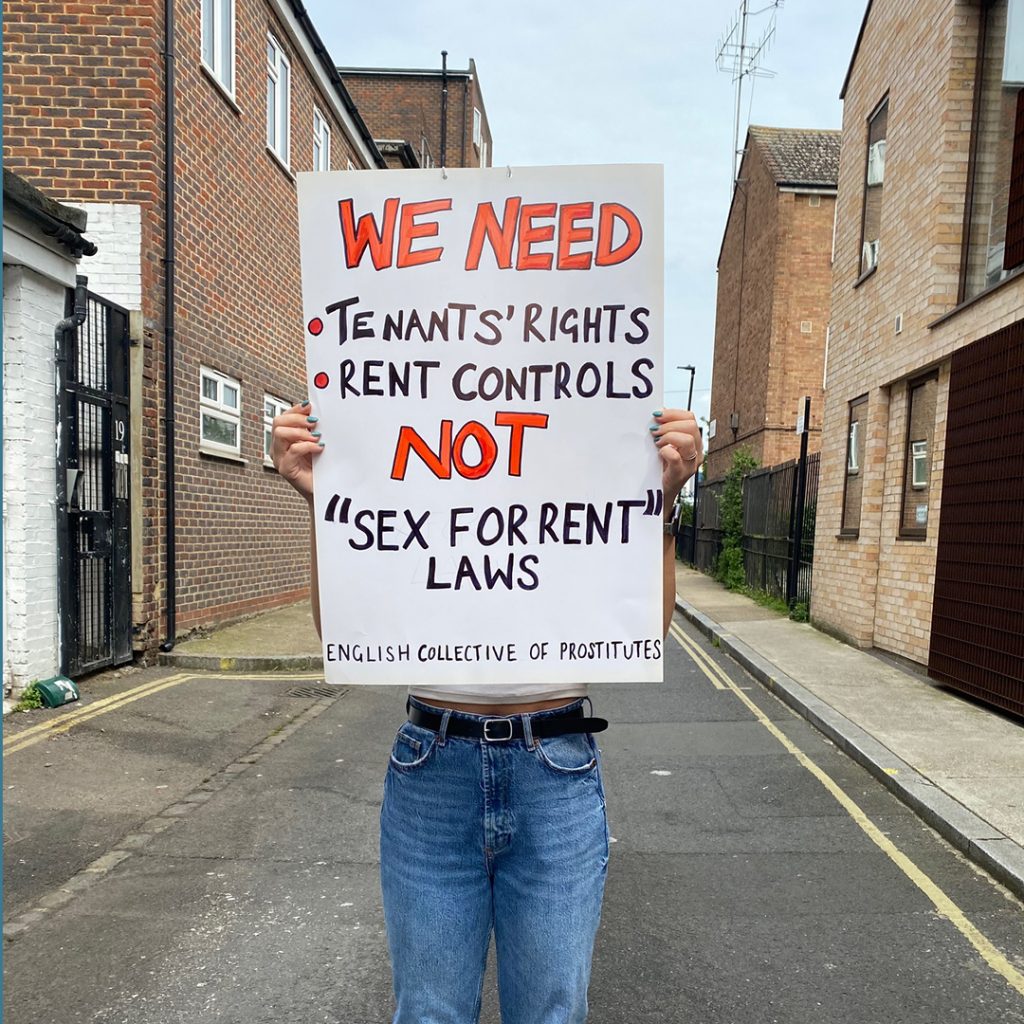Action Alert: Tenants’ rights – NOT “sex for rent” laws!

The government is considering creating a new law to explicitly outlaw so-called “sex for rent” and has issued a “call for evidence”.
The deadline for submissions is 30 June 2023. Please click here to fill in the online questionnaire
—-
The ECP opposes legislation to outlaw “sex for rent” because:
- If a landlord harasses, threatens or coerces any tenant into sex, this is an offence and should be prosecuted under existing criminal laws.
- It will do nothing to address the housing crisis or help tenants deal with exploitative and abusive landlords
- It will curtail women’s housing options, pushing women further into housing precarity and homelessness.
Many of us in the ECP were in the situation of providing sex in exchange for low or no rent before, during and after we were also sex workers. For us, the crucial issue is consent. If women want to respond to an advert and enter into this arrangement, that’s up to them. If the landlord is coercive, exploitative, threatening or violent, and therefore committing a criminal offence, he should be prosecuted.
There is a massive housing crisis in the UK exacerbated by the cost-of-living crisis, rising poverty, low wages, lack of social housing and property being used for speculation and profiteering rather than to accommodate people.
Over 6.5 million people are living in substandard housing. Tenants lack the rights they need to stand up to abusive landlords. Women’s homelessness is particularly hidden. Women make up 60% of people in temporary accommodation and numbers have almost doubled over the past decade. Migrant and trans women and people of colour, along with mothers and people with disabilities in particular find rents unaffordable and face severe discrimination in the housing market. Almost one in three single mothers (321,000) are in arrears or constantly struggling to keep a roof over their heads. 25% of UK trans people have been homeless at some point.
The new Renters Bill may help but clauses on anti-social behaviour are likely to be used in a discriminatory way.
Women Against Rape which opposes new “sex for rent” laws comments:
“The government should address the poverty and homelessness that make it harder for women (sex workers or not) to have the power to refuse any unwanted sex. Its claims to be protecting women from abusive landlords ring hollow when the rape and other violence women actually report is more often than not dismissed and deprioritised.”
Any legislation outlawing “sex for rent” will be an occasion for increased surveillance against sex workers. Sex workers face high levels of homelessness and are discriminated against in the housing market. Most sex workers are mothers which compounds that discrimination. One young mother living in communal housing – the only rent she could afford – was questioned by police who falsely claimed the housing was unsafe and threatened to take her child if she didn’t move.
The ECP is part of the coalition Hookers Against Hardship whose demands for rent controls, a moratorium on evictions, decriminalisation of sex work, an end to benefits sanctions, and access to living wage benefits for all, would, if implemented, help address the housing crisis as well as reduce stigma and discrimination against sex workers.
